
Kirk E. Cahill, MD, and Sonali M. Smith, MD, spoke with CancerNetwork® about their review of the current management and treatment of follicular lymphoma published in the journal ONCOLOGY®.

Your AI-Trained Oncology Knowledge Connection!


Kirk E. Cahill, MD, and Sonali M. Smith, MD, spoke with CancerNetwork® about their review of the current management and treatment of follicular lymphoma published in the journal ONCOLOGY®.

The FDA has accepted a biologics license application for vic-trastuzumab duocarmazine for patients with HER2-positive unresectable locally advanced or metastatic breast cancer.
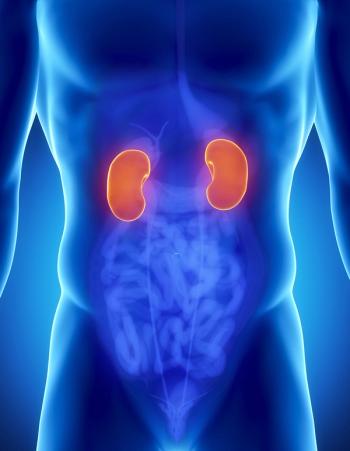
The primary end point of progression-free survival was met in the phase 3 COSMIC-313 trial which investigated cabozantinib, nivolumab, and ipilimumab in previously untreated, advanced intermediate- or poor-risk renal cell carcinoma.

In this month's Letter to the Readers, ONCOLOGY co-editor-in-chief Howard S. Hochster, MD, discusses oxaliplatin hypersensitivity reaction in gastrointestinal cancer.
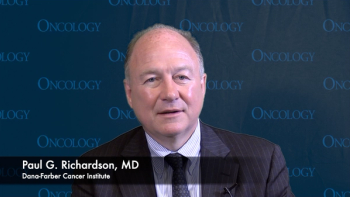
At 2022 ASCO, Paul G. Richardson, MD, dives into results of the DETERMINATION study, which examined triplet therapy with lenalidomide plus either lenalidomide maintenance until progression or autologous stem transplantation in newly diagnosed multiple myeloma.

Results from the phase 2 APPROVE trial showed apatinib plus pegylated liposomal doxorubicin improved efficacy and safety compared with pegylated liposomal doxorubicin alone for patients with platinum-resistant recurrent ovarian cancer.

Patients with low-risk locoregionally advanced nasopharyngeal carcinoma who received 2 cycles of concurrent cisplatin plus intensity-modulated radiotherapy compared with 3 cycles had better survival and manageable toxicities.

The regulatory organization indicated that duvelisib induces increased risk of death or serious adverse effects in patients with chronic lymphocytic leukemia and small lymphocytic leukemia.

Those with non–small cell lung cancer who had increasing tumor mutational burden appeared to experience better inflammatory T-cell–mediated responses compared with those who had low tumor mutational burden.

Biagio Ricciuti, MD, spoke about results of pembrolizumab monotherapy administration in patients with non–small cell lung cancer who had a PD-L1 tumor proportion score of 90% or more.

The phase 2 CTMX-2009-002 trial met its primary end point of confirmed objective response greater than 10% for patients with hormone receptor–positive, HER2–non-amplified breast cancer being treated with praluzatamab ravtansine.
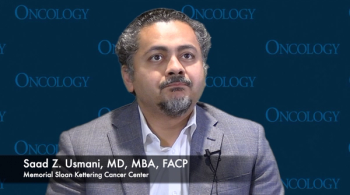
Saad Z. Usmani, MD, MBA, FACP, discusses the use of lenalidomide, bortezomib, and dexamethasone with or without elotuzumab for newly diagnosed, high-risk multiple myeloma.

Ola Landgren, MD, PhD, highlights how future research efforts in multiple myeloma are likely to focus on chemotherapy-free regimens and minimal residual disease detection.

Enzalutamide monotherapy could be a promising alternative to active surveillance for patients with low- and intermediate-risk localized prostate cancer.

After receipt of a complete response letter in May 2022, a biologics license application for toripalimab monotherapy in the second line or later following platinum chemotherapy or in combination with chemotherapy in the first-line setting for advanced recurrent or metastatic nasopharyngeal carcinoma was resubmitted to and accepted by the FDA.

Black adolescent young adult patients with acute myeloid leukemia appeared to have inferior outcomes compared with White patients.
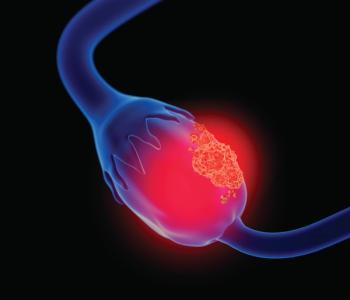
Patients with advanced newly diagnosed ovarian, tubal, or peritoneal cancer did not derive further survival benefit from maintenance chemotherapy, although a modest improvement in progression-free survival was observed compared with surveillance.

Catherine S. Diefenbach, MD, spoke about refining understanding of CAR T-cell therapies after the approval of lisocabtagene maraleucel for patients with relapsed/refractory large B-cell lymphoma.

The phase 3 RATIONALE 306 trial showed improved overall survival for patients receiving tislelizumab plus chemotherapy vs placebo and chemotherapy for unresectable, locally advanced or metastatic esophageal squamous cell carcinoma regardless of PD-L1 status.
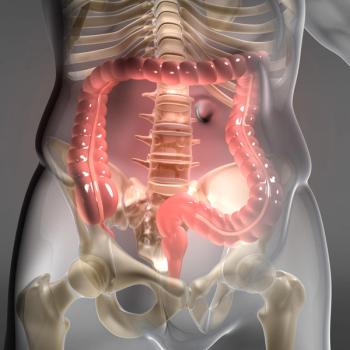
Patients with previously treated HER2-positive metastatic colorectal cancer experienced durable responses following treatment with tucatinib in combination with trastuzumab.

Results from the phase 3 AEGEAN trial showed an improved pathological complete response in patients with resectable non–small cell lung cancer treated with durvalumab plus neoadjuvant chemotherapy vs chemotherapy alone.

At 2022 ASCO, Paul G. Richardson, MD, reviewed the rationale of the phase 3 DETERMINATION study that set out to determine the benefit of lenalidomide maintenance with or without autologous stem transplantation in newly diagnosed multiple myeloma.

Patients with relapsed/refractory large B-cell lymphoma may benefit from treatment with epcoritamab, for which a biologics license application will be submitted to the FDA.

Based on results of a phase 1/2 trial of single-agent mosunetuzumab in B-cell malignancies, the agent was granted priority review by the FDA for the treatment of relapsed/refractory follicular lymphoma.

Belzupacap sarotalocan received fast track designation from the FDA for and will be assessed in a phase 1 clinical trial of patients with non–muscle invasive bladder cancer.

Treatment strategies might be better tailored through the use of next-generation sequencing to detect NRG1 fusions.

Tony S. Mok, MD, spoke about future research efforts focused on capmatinib plus pembrolizumab in patients with previously untreated MET-unselected, PD-L1–positive non–small cell lung cancer.

Patients with TRK fusion–positive disease experienced promising survival outcomes following treatment with larotrectinib vs standard of care.

Patients with HER2-low unresectable or recurrent breast cancer in Japan could receive treatment with trastuzumab deruxtecan in the future if the newly submitted supplemental new drug application for this indication is approved.

Steven J. Chmura, MD, PhD, discussed recent findings from the phase 2R/3 NRG-BR002 trial in patients with newly diagnosed oligometastatic breast cancer.